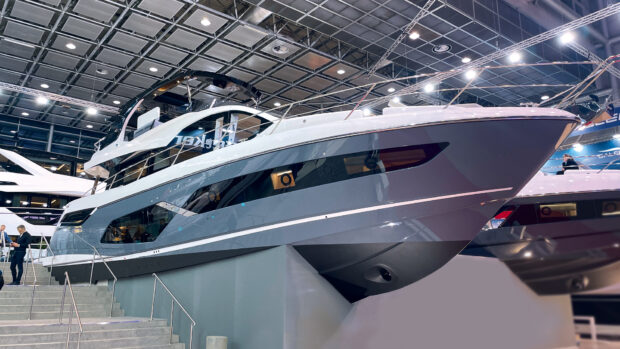A marine industry symposium on the fire risk posed by lithium-ion batteries has concluded that the technology is safe but that risks increase with misuse and uncertified accessories...
The discussion was convened following a spate of recent fires on boats attributed to lithium-ion batteries overheating. No fewer than 20 such incidents over the past 18 months aboard larger yachts were cited, some with catastrophic consequences.
Hosted by marine law specialist Shoosmiths, the meeting was moderated by Elliot Bishop, who heads the Shoosmiths’ litigation group, and included an impressive panel of experts – Duncan Duffy, Lloyd’s Register’s global head of technology/electrotechnical systems, Mike Wimbridge of yacht insurers Pantaenius UK, Charlie Mumford from Cayman Islands Shipping Registry and Richard Selby at yacht aviation specialist Maritime Aviation.
Elliot Bishop began by outlining the role lithium-ion battery technology already plays in yachting and hinted at how big it is likely to be in the future, given the drive to net-zero, which the IMO (International Maritime Organisation) has timetabled the marine industry to reach by 2050 but which parts of the leisure sector would like to achieve much sooner.
One recent study, he said, would take the lithium-ion-powered vessel and toys market from $100 million today to $1.4 billion by 2030 and suggests more electric boats will be sold this year than all previous years put together.
Key findings include following manufacturer guidance, not leaving devices on charge when no-one is aboard, and not using uncertified equipment, particularly everyday domestic items such as sub-standard adaptors and chargers for phones and tablets, which are often brought aboard by guests. Education of owners, crew and guests was deemed vital, especially aboard smaller unlicensed craft.
Article continues below…

Are electric boats finally catching up to cars? Torqeedo Deep Blue 100i 2500 makes us wonder…

Cleaner boating fuels: 5 diesel alternatives that could outperform batteries
Larger yachts and superyachts, which often have more lithium-ion powered devices aboard than smaller craft, have not suffered disproportionately with such fires. Far from it. Charlie Mumford illustrated this point well by explaining how safety awareness can mitigate the risks significantly.
He said that despite the increasing use of toys with lithium-ion batteries in recent years across the 2,200-strong fleet of Cayman Islands-flagged superyachts, just one fire in 2021 and another in 2022 were linked directly to lithium-ion batteries.
The reason, he believes, is that large yacht crews are more used to dealing with fire prevention measures and training. For instance, he said, carrying petrol for tenders and PWCs on board larger yachts presents an even bigger fire hazard but incidents involving petrol fires are very rare because the risks are better understood. Battery security issues need to be raised to a similar level of consciousness.
They also agreed that fire alarm, monitoring and extinguishing equipment needs to be adequate and maintained, precautionary measures should be adopted, and that more regulation is required to ensure these products are safe for use in a marine environment.











